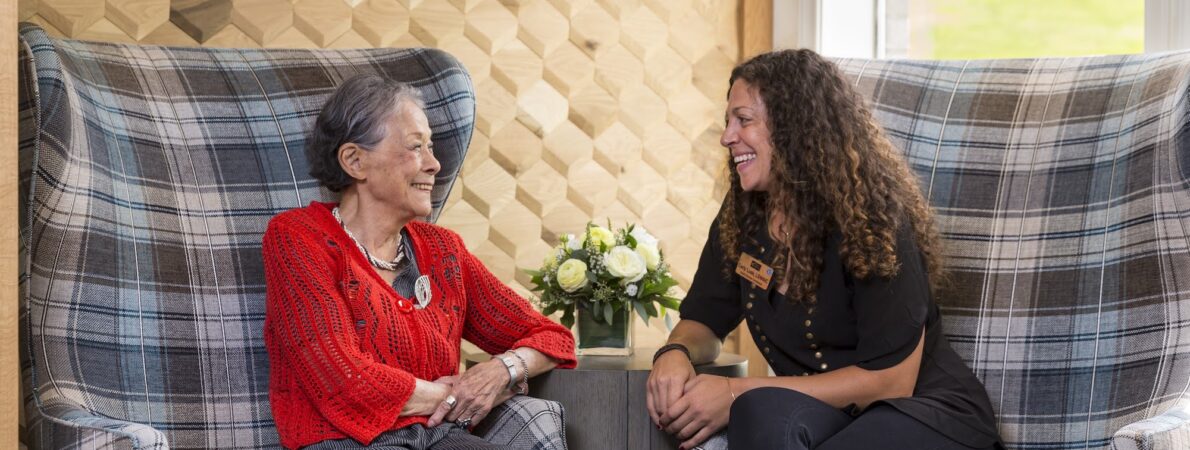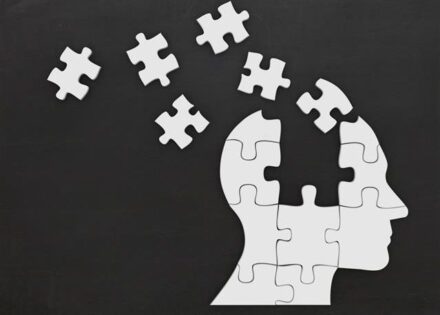Memory & Brain Health
Resources brought to you by Era Living Memory Care
In the US, there are at least 5 million people currently living with age-related dementias. Due to longer life expectancies and the baby boomer population, the percentage of Americans living with this disease will increase in the upcoming years. While there is no cure for Alzheimer’s disease and other forms of dementia, there are a number of things that people can do to help maintain cognitive function and improve quality of life as they age. We at Era Living Memory Care have created this resource center for those interested in learning more about memory loss and lifestyle changes that may prevent it. We’ve also included resources helpful for those living with memory loss or those who have a family member or friend experiencing cognitive decline.

Understanding Dementia
In today’s fast-paced society, we all forget a few things. It might be where you put your umbrella or the password to one of your online shopping destinations. So how can you tell if you or your loved one’s forgetfulness is a normal part of the aging process or something more serious?
Questions that can help you start to differentiate:
-
When your family member forgets somethings like a doctor's appointment or to pay a bill, do they it remember it later?
-
People with Alzheimer’s disease typically won’t remember it at all. Information they forget is usually gone forever. Even if you remind them, they likely won’t realize they already knew about the appointment or chore they were supposed to complete.
-
Is your senior loved one struggling to remember to do things or are they having problems remembering how to do them?
-
While this may seem like a minor distinction, it really isn’t. When an older adult exhibits behavior that seems to indicate their abstract thought process is impaired, it could be an early sign of Alzheimer’s. They might be struggling to pay bills, for example, because they can’t remember how to write out a check properly.
-
Do you notice a pattern developing whereby your aging parent or loved one is misplacing things or "storing" things in inappropriate locations?
-
This behavior is often an early indicator of Alzheimer’s disease. They may also become suspicious of close friends and family and accuse them of stealing their misplaced possessions.
-
Is the senior you care for unable to recall recent events even after repeated prompts?
-
For example, you call your loved one in the morning to remind them that you will pick them up in an hour for their doctor’s appointment. When you arrive at their home, you find they aren’t ready to go and don’t recall having the conversation.
-
Does your loved one have a hard time finding their way to and from familiar locations?
-
If your older loved one has always gone swimming at the YMCA a few days a week but now they can’t find their way home, it is a behavior that warrants a call to their primary care physician. Getting lost in a familiar environment may be a sign of something more than normal aging.
If you found yourself answering YES to more than one of these questions, it may be time to consider scheduling an appointment with their doctor. He or she is the best person to help decide if the problem is normal aging or something more serious that needs to be investigated.
Read more on dementia
Preventing or Slowing Memory Loss
If you are the adult child or spouse of a senior with Alzheimer’s disease, you have likely wondered and worried about your risk for developing it. Over the years researchers have developed some recommendations they believe can help you avoid or delay the onset of Alzheimer’s disease.

Suggestions to consider if you have concerns:
-
Befriend Your Local Barista
-
For years we were told to limit coffee drinking to just one cup a day. Newer research disputes that recommendation. It revealed that drinking up to four cups of coffee a day may protect you from developing Alzheimer’s. A word of caution however. If you have coronary disease, talk with your physician before adding more coffee to your day. Cardiologists typically advise their patients to avoid caffeine.
-
Stop Smoking
-
While most people know that smoking increases the risk for cancer and cardiac disease, what many aren’t aware of is that it has also been linked to higher rates of Alzheimer’s. Research indicates smoking can increase the risk by as much as 157%.
-
Brain Aerobics
-
To help prevent cognitive decline, stay mentally engaged and continue to learn new things. You can give your brain a daily work out by playing cards, working puzzles, learning to play a musical instrument or tackling a new foreign language. There are also several acclaimed mobile apps that focus on brain exercises.
-
Healthy Diet
-
Countries that follow a Mediterranean style of eating have lower rates of Alzheimer’s disease. A brain healthy diet is considered to be one rich in fruit, fish, nuts, beans and vegetables. Omega-3 fatty acids are especially important in preventing or slowing the progression of Alzheimer’s. They can be found in salmon, tuna, and walnuts. More foods are being enriched with Omega-3 fatty acids. That makes it easier to work more Omegas in to your daily diet. Check the labels on foods such as eggs, peanut butter, and butter replacement spreads like Smart Balance and Benecol.
-
Keep Moving
-
Exercise is another way to help decrease your risk of Alzheimer’s. Getting regular exercise can help you keep your blood pressure lower and manage stress. Both health conditions have been linked to higher rates of Alzheimer’s.
Memory & Brain Health Webinars
Read more on preventing and slowing memory loss
The Benefits of Memory Screening and Early Detection of Memory Problems
As you or your loved ones grow older, you might find yourselves becoming a little forgetful. Some memory loss is a normal part of the aging process. There are, however, certain behaviors that may be early warning signs of something more serious. It is important to identify memory problems, as some are readily treatable and others are easier to treat if diagnosed early.
-
Common medical conditions that cause memory problems
-
There are a number of medical conditions that can cause memory issues, and many are easily treated, managed, or cured under medical supervision. Examples include:
- Vitamin deficiencies
- Thyroid issues
- Depression
- Medication side effects
- Urinary tract infections
-
Benefits of early detection of dementia-related memo
-
Memory problems could also also be related to dementia-related illnesses, including Alzheimer’s disease. While there is no cure for Alzheimer’s disease, there are a number of benefits to early detection. Importantly, early detection can significantly improve one’s quality of life for a number of reasons. First, it can offer the person the opportunity to take advantage of treatments that may slow the changes in memory and thinking skills or participate in a clinical trial. This in turn may help a person with dementia live independently longer. Other benefits according to the Alzheimer’s Association include:
- The opportunity to try out FDA-approved drugs that can lessen the symptoms, including memory loss and confusion
- The chance to make lifestyle decisions that may slow cognitive decline
- May help reduce anxiety associated with unexplained memory issues
- The chance to maximize time with family and others important to you
- Access resources and support groups
- More time to plan for the future and share your wishes with loved ones, keeping you in control
-
What to expect in memory screenings
-
A memory screening is a simple and safe “healthy brain check-up” that tests memory and other thinking skills. It is important to understand that these screenings do not diagnose dementia or Alzheimer’s. They simply determine whether or not further testing is necessary.
During a memory screening appointment, a qualified health professional will spend about 10 minutes with you or your loved one. The screening professional will utilize one of several accepted memory assessment tools to ask a series of questions and assign minor tasks. The objective is to evaluate memory, language skills, and critical thinking skills.
After the exam is completed, the screening professional will share their findings. It might be they don’t detect any memory problems or concerns or it could be they recommend you see a primary care physician for follow-up. The examiner will also provide a written report that explains the results of the testing.
-
How to get a memory screening
-
The Alzheimer’s Foundation of America offers free, confidential memory screenings virtually. You can learn more about this on their website. They also offer a simple and confidential online memory test that some may prefer as an initial step. Your primary care doctor is also an excellent resource for the screening itself and/or any follow up testing or care planning.











